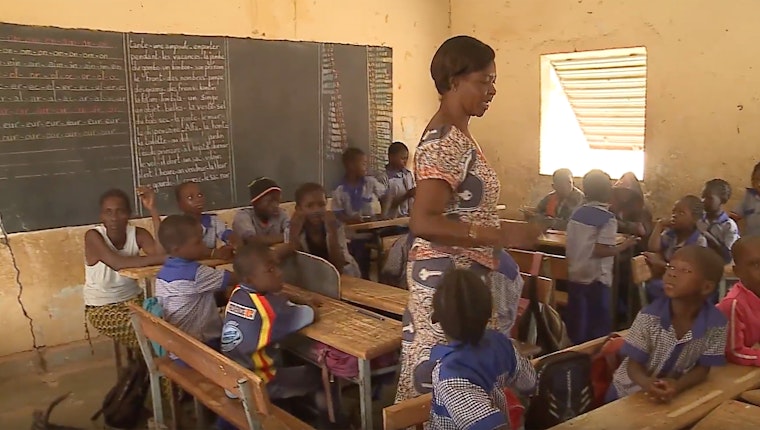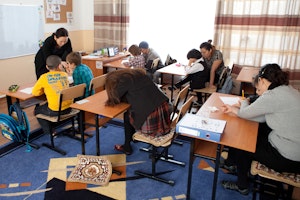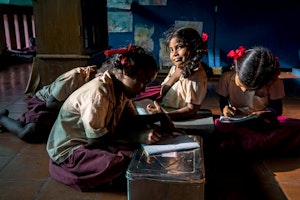Helping Teachers Create More Inclusive Classrooms
By Ingrid Lewis

Fatima scores A+ in all the class tests and is bored at school. Joseph has dyslexia. Jane uses crutches to move around. Mohammed cannot see very well. Sara excels in mathematics but struggles with spelling. Boris can’t sit still for more than 20 minutes. And Mina has autism.
What do they all have in common? They are all learners, and all have the same right to a high-quality education.
Many schools and classrooms around the world—from preschools all the way to colleges and universities—still need to be more inclusive. They need to ensure that every child feels welcomed, supported, and safe. This is much easier said than done, I know.
But as my colleagues and I at the Enabling Education Network (EENET) have long argued, the model currently favored in so many schools and preschool systems, in which some children are separated from others and put in specialized institutions, is not working. It is not enabling every child to receive a quality education and become a productive member of their communities.
We’re not alone in this respect. A shift is slowly happening away from segregated education towards classrooms and schools that are more inclusive. There are cases, however, when administrators and teachers agree on the need to create a more inclusive environment—but they simply don’t know how to do it.
That doesn’t mean there is no information about inclusive education out there—there is plenty. But existing guidance materials are often inappropriate, and many have failed to meet the needs of the teachers, trainers, and education managers who contact EENET for advice. Many existing materials only offer guidance on including specific groups of children, rather than creating a more holistically inclusive environment. Others are too abstract and theoretical, or too ambitious.
At EENET, our mission is to inform and encourage discussions about inclusive education among a wide range of administrators, teachers, parents, nongovernmental organizations, and policymakers. In recent years, it has become clear to us that there is a growing demand for materials that not only explain why inclusive education matters, but that also offer practical and hands-on advice about how to implement it. Inclusive classrooms do not have to be complicated or expensive, and more guidance materials need to demonstrate this.
That is why we decided to create An Inclusive Day: Building Foundations for Learner-Centred Inclusive Education, a new video-based training resource for school leaders and teachers—especially those working with limited resources and a student body with a wide array of needs. Filmed within school communities in Burkina Faso, Myanmar, Ukraine, and the United Kingdom, the videos offer guidance on practical, everyday issues such as getting to school, preparing lessons, understanding learners’ needs, managing break times, and so on.
For instance, in one of the videos, we show that something as achievable as having a friendly, smiling teacher who welcomes every student in the morning—and who encourages other students to do the same—can make a big difference and encourage an overall culture of inclusion. Meanwhile, another video shows teachers that planning inclusive lessons is much easier when it’s done collaboratively with colleagues.

Quality teaching and inclusive education are two sides of the same coin. Together with our funders, we believe that inclusion needs to happen as early as possible in every child’s life, including in preschool activities. It is time to stop seeing inclusive education as a complex and specialist process requiring skills that ordinary teachers lack.
Giving extra support to some learners, offering others more advanced activities, making low-cost or no-cost adjustments to the school environment, taking time to understand learners’ interests and strengths—these aren’t the actions of a specialist. They’re part of the daily process for any quality teacher.
The Enabling Education Network is a grantee of the Open Society Foundations.
Watch and download the complete series of inclusive education training materials.
Ingrid Lewis is the managing director of the Enabling Education Network.


